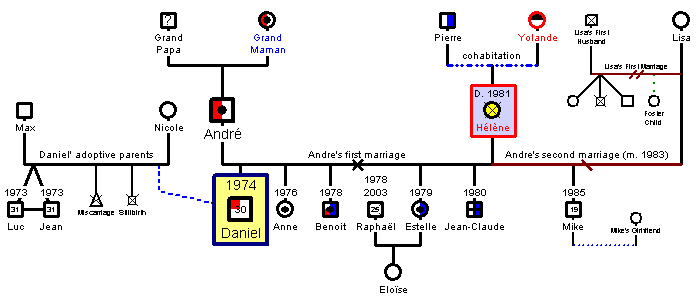First off is the boomerang generation. According to recent statistics, now more than ever, young people or couples are moving back home with their parents. There are several reasons to why couples will move back in with the parents. First, after college, couples need a place to live that is cheep in order to transition into the "real world." Also because of today's economy, it is hard to find a job, so they move back in with their parents in order to save money. I think the challenges that come with this is pretty apparent. New boundaries need to be set and responsibilities need to be distributed. but one thing that we can learn from this is a young couple can see how a seasoned couple interacts and communicates with each other. The older couple can also look at their children and their young relationship and reminisce on their past. Usually with our autobiographical memory we remember more of the good than the bad. So remembering the good can strengthen the relationship.
Retirement can be a hard transition for some. My father had a hard time with his retirement for a time until he became fully involved in his church as a bishop. It is pretty extreme to go from working 40+ hours a week to not working at all. My father for example, became board. My mother had a couple projects for him that kept him busy, but it just wasn't the same. Sometimes when couples spend more time together, the begin to conflict and argue with one another. But couples also have more opportunity to spend time with each other and do things with each other in retirement. It is when we become idle that we generally start to critique each other. That is why we need to stay active in retirement. Take vacations, plant a garden, or just go visit family. Do things together.
 The loss of a spouse is a very hard thing, especially for those who have been together for such a long time. Just finding a routine that doesn't involve the other spouse. Finding something that we can learn from the loss of a spouse can be very difficult. But one main thing that I can think of and that we discussed in class is that after the death of a spouse we will really analyze where we fit in our family and we can find our importance and our influence that we still carry on our children and grandchildren.
The loss of a spouse is a very hard thing, especially for those who have been together for such a long time. Just finding a routine that doesn't involve the other spouse. Finding something that we can learn from the loss of a spouse can be very difficult. But one main thing that I can think of and that we discussed in class is that after the death of a spouse we will really analyze where we fit in our family and we can find our importance and our influence that we still carry on our children and grandchildren.In life, we will have many turning points that will "rock our world." these can be hard to adjust to and sometimes they are very hard to deal with. But one thing that we have to keep in mind is that there is always something to learn from it and a way that it can strengthen your family and marriage.

























